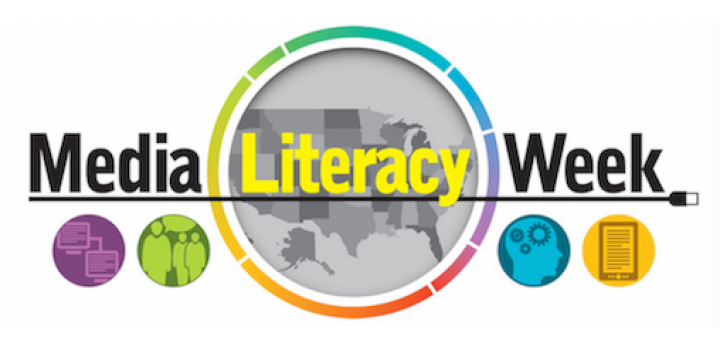Teaching and learning in grades 4-8
In Disrupting Thinking, Kylene Beers and Robert Probst argue that educators must help students become empowered readers who read out of personal desire, not just for school work. The authors’ well supported argument uses a “Book-Head-Heart” framework, says Kevin Hodgson.
NCTE’s National Day on Writing (#WhyIWrite) is Friday, October 20. To help celebrate, we’ve pulled together a dozen of the many great posts about teaching writing that are freely available at MiddleWeb. You’ll find ideas, inspiration, and ready-to-use activities here.
There’s no perfect teaching recipe that balances patriotism and civic responsibility, says middle school history teacher Lauren Brown. But if educators attempt to ignore the low points in America’s past, they’ll insult students’ intelligence and lose their trust.
With slanted news, social media and “reality” TV ceaselessly attracting the attention of young people, literacy consultant Frank W. Baker underscores the importance of Media Literacy Week, urging all educators to teach students how to analyze media “as text.”
Don’t Suspend Me! can be used to ramp up school and district discussions about discipline policies. Principals, discipline teams, and individual teachers whose schools don’t have access to onsite PBIS training might adapt the book’s suggestions, says Mary L. Thompson.
Math students retain more and gain confidence when they understand why a process works. But some are more interested than others in learning about the Why. Michelle Russell considers how she can best include the Why as students learn the How of problem solving.
Educators talk about giving students “voice, choice and agency,” says NBCT Rita Platt, but how does that actually happen in a practical, curriculum-friendly way? Platt believes the secret is teaching students to set goals. Learn about her 5-step process (tools included).
Hacking Project Based Learning is a rich resource for teachers and administrators who want to begin implementing project-oriented inquiry learning, says PBL teacher Sandy Wisneski. She appreciates the strong emphasis on student ownership in each of the book’s 10 hacks.
Moment to Moment helps educators empower students to recognize what may “trigger” a behavior problem and how to react positively in that moment. Linda Biondi says teachers will benefit from the case studies of several student types that are followed through the book.
The framework Jennifer Abrams develops in Hard Conversations Unpacked focuses on professional growth, and ultimately on positive outcomes for student learning. Principal Mike Janatovich will never again attempt a challenging conversation without this guidance.





































